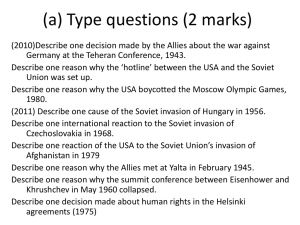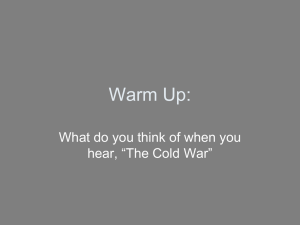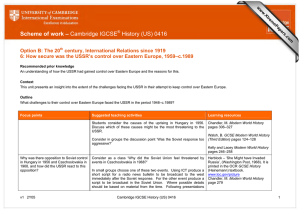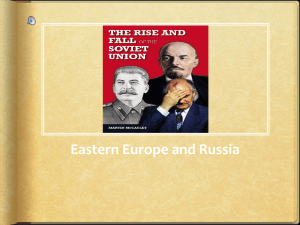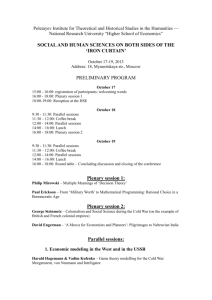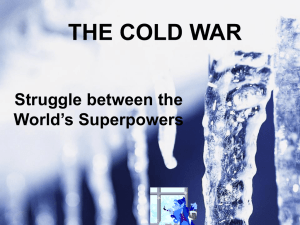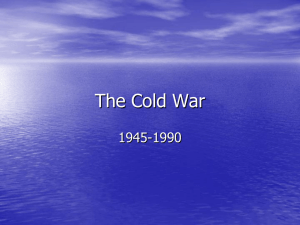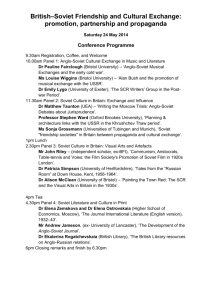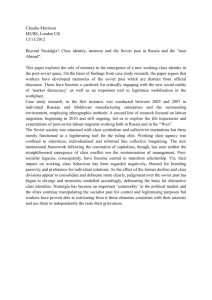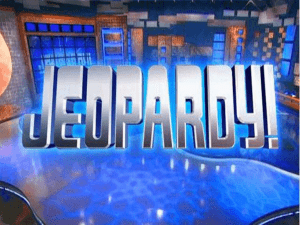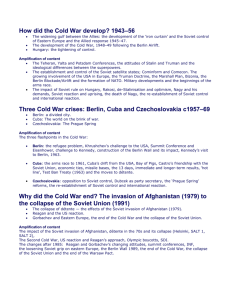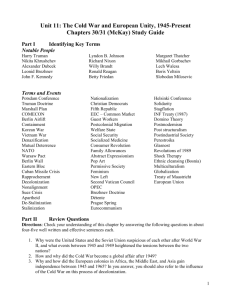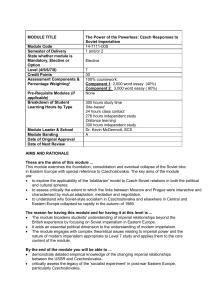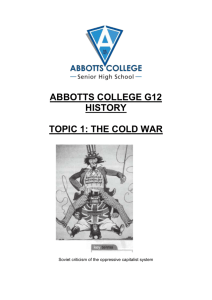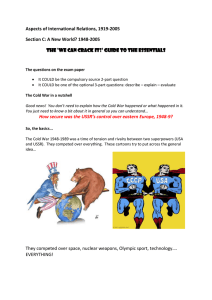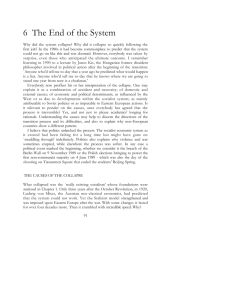Unit 1 - Master College
advertisement
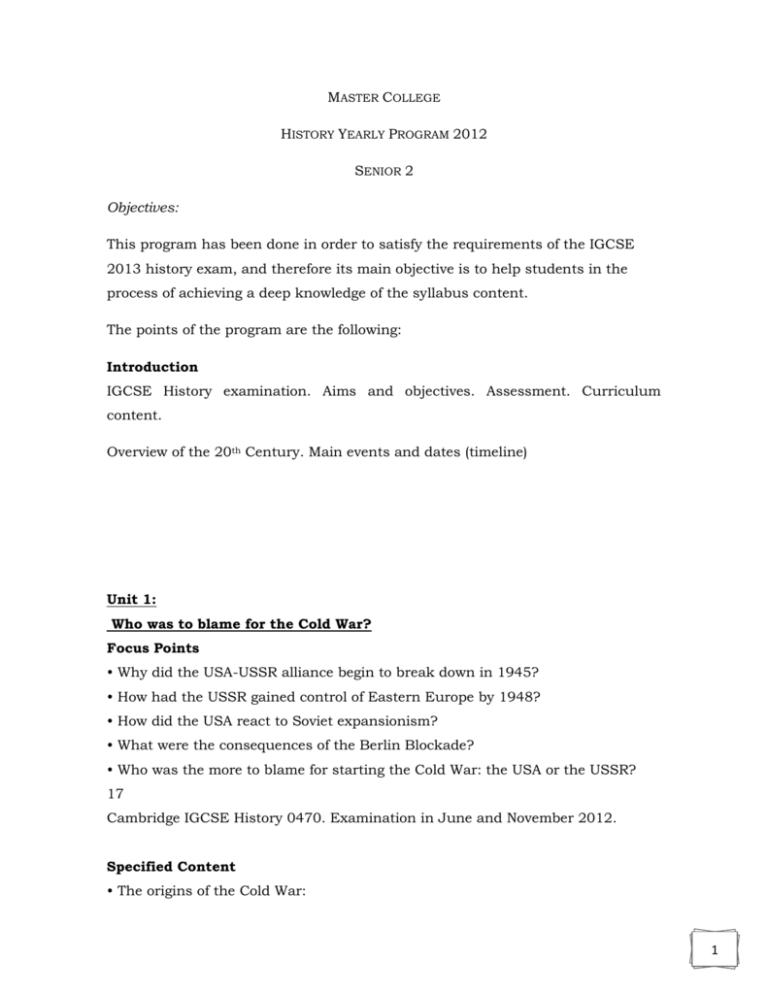
MASTER COLLEGE HISTORY YEARLY PROGRAM 2012 SENIOR 2 Objectives: This program has been done in order to satisfy the requirements of the IGCSE 2013 history exam, and therefore its main objective is to help students in the process of achieving a deep knowledge of the syllabus content. The points of the program are the following: Introduction IGCSE History examination. Aims and objectives. Assessment. Curriculum content. Overview of the 20th Century. Main events and dates (timeline) Unit 1: Who was to blame for the Cold War? Focus Points • Why did the USA-USSR alliance begin to break down in 1945? • How had the USSR gained control of Eastern Europe by 1948? • How did the USA react to Soviet expansionism? • What were the consequences of the Berlin Blockade? • Who was the more to blame for starting the Cold War: the USA or the USSR? 17 Cambridge IGCSE History 0470. Examination in June and November 2012. 4. Curriculum content Specified Content • The origins of the Cold War: 1 o the 1945 summit conferences and the breakdown of the USA-USSR alliance in 1945–6 o Soviet expansion into Eastern Europe to 1948, and American reactions to it o the occupation of Germany and the Berlin Blockade. Unit 2: How effectively did the USA contain the spread of Communism? (PAPER 2 for the 2013 examination) Focus Points This Key Question will be explored through case studies of the following: • America and events in Cuba, 1959–62 • American involvement in Vietnam. Specified Content • events of the Cold War: o case studies of: o American reactions to the Cuban revolution, including the missile crisis and its aftermath o American involvement in the Vietnam War. Unit 3: How secure was the USSR’s control over Eastern Europe 1948–c.1989? Focus Points • Why was there opposition to Soviet control in Hungary in 1956 and Czechoslovakia in 1968, and how did the USSR react to this opposition? • How similar were events in Hungary in 1956 and in Czechoslovakia in 1968? • Why was the Berlin Wall built in 1961? • What was the significance of ‘Solidarity’ in Poland for the decline of Soviet influence in Eastern Europe? • How far was Gorbachev personally responsible for the collapse of Soviet control over Eastern Europe? Specified Content • Soviet power in Eastern Europe: 2 o resistance to Soviet power in Hungary (1956) and Czechoslovakia (1968) o the Berlin Wall o ‘Solidarity’ in Poland o Gorbachev and the collapse of the Soviet Empire. Cambridge IGCSE History 0470. Examination in June and November 2012. Tests and evaluations: These will have two objectives. Firstly, to be functional in order to check the adquired knowledge of the pupil, and, in second place, the test will be a training execrcise in order to face the IGCSE exam with more security and confidence. The marks and averages are as asusal in all subjects. Note: Regarding the final mark of each school quarter , it will be very important not only to pass the written tests and the PW, but also to work for each class, to have the history folder complete, and to have an active attitude towards the subject. Bibliography: An outline of American history, USAIA. Lacey and Shephard, Germany 1918-1945 Hodder Murray Ed. Miller, Modern European history, Mcmillan ed. Murphy et al. : Europe 1760-1871, Flagship history, Collins ed. O`callaghan, A history of the xx century, longman Ed. Walsh, Modern world history, Hodder murray Ed. 3
